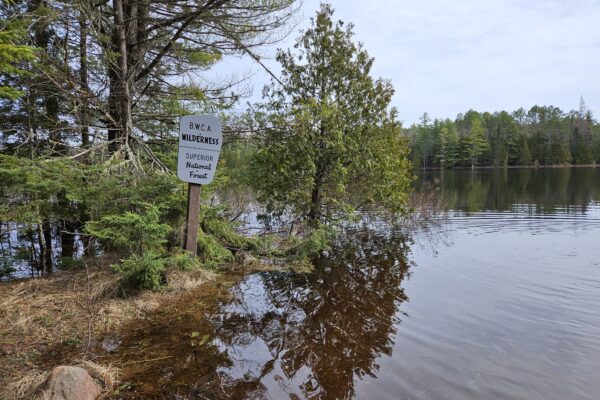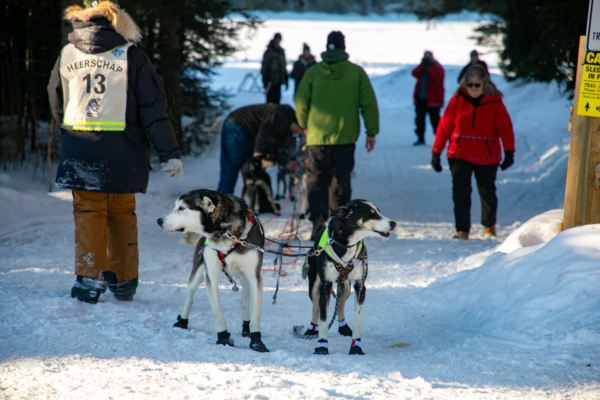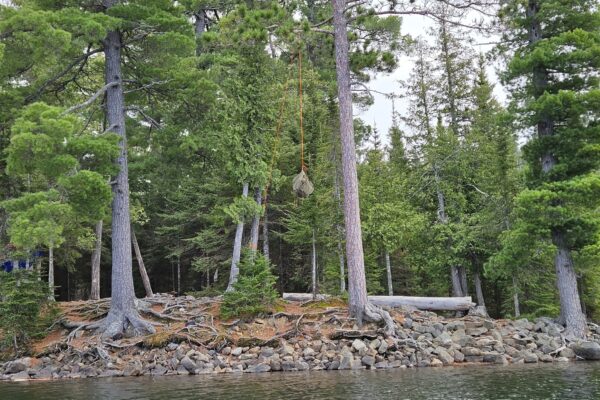Use of motorized towboat services in the BWCA rests with federal judge as paddling season nears
Over the weekend, there was news of a court case that could end the longstanding practice of using motorized towboats to help Boundary Water Canoe Area Wilderness visitors get started on their wilderness trips at least temporarily. A national organization, Wilderness Watch, is seeking an injunction to halt the towboat permit system as soon as the ice melts.
The US Forest Service allows the use of towboats to assist canoeists starting their BWCA journey, dispersing visitors deeper into the million-acre BWCA. Some outfitters at the end of the Gunflint also use the towboat service to help paddlers reach Quetico Provincial Park via the Cache Bay Ranger Station. The towboats typically drop paddlers at American Point on Saganaga Lake, which is partially inside the BWCA.
If the federal judge reviewing the injunction rules in favor of Wilderness Watch, it could disrupt the plans of thousands of Minnesotans who have already booked towboat-assisted trips with BWCA and Quetico outfitters. Here in Cook County, the ruling could impact Tuscarora Lodge and Outfitters, Seagull Outfitters, and Voyageur Canoe Outfitters. The ruling would have a much larger impact on the Ely area, where many canoeists receive a tow across Moose Lake each season, among other lakes in the Ely area.
As the federal judge considers a ruling on the injunction, WTIP caught up with Matthew Ritter from Voyageur Canoe Outfitters on the Gunflint Trail, to ask a few questions about towboat operations and the possible impact of an injunction.
For those who have not used towboat service or noticed one on the lake, WTIP asked, “Just what does a towboat look like?” Ritter responded that towboats are 18-foot Jon boats with 25 horsepower motors. A specially built rack on the boat holds canoes. The boats transport up to four people to a U.S. Forest Service designated drop-off spot. Voyageur Canoe Outfitters runs towboats on Lake Saganaga. Ritter said there are a “handful” of drop-off spots. He said the most common drop off is the location known as American Point. He said there are also spots at Red Rock Lake and Sag Falls near those portages.
In its court filing, the Forest Service states that even if towboats were removed from their existing routes, those areas would be “far from pristine.” WTIP asked Ritter if he believes that is the case. Ritter said he agrees, noting that are about 50 cabins across the lake on the Canadian side. Ritter also noted that motors have been in use on Saganaga since before the 1978 Wilderness Act and use continues. Anglers can fish on Saganaga with a BWCA permit.
Ritter said Voyageur Outfitters is very clear when they book BWCA trips that Saganaga has motorized use. He said visitors are aware of that and choose to use the motorboat to get closer to paddle-only lakes within the BWCA.
Asked if this injunction would impact Voyageur Outfitters economically, Ritter said it would if people cancel trips. He said he is hopeful that people would not cancel trips, but instead add on additional days to paddle.
Ritter said outfitters have been working with the Forest Service on tracking towboat use. He said the documents for recording towboat trips is thorough. He said outfitters have been following the ongoing legal battles over towboats, but the news of the injunction and possible halt to the service this year was “breaking news.”
WTIP also reached out to Wilderness Watch. The organization claims that the Forest Service is not upholding its self-imposed restrictions and limitations of towboat services. The Forest Service’s most recent figures showed that in 2019, there were 4,817 tow boat trips, and 3,815 total trips in 2020. These figures amount to nearly “tripling the level that the Forest Service pledged that it would limit the total to,” according to officials from Wilderness Watch.
WTIP asked officials from the Forest Service to comment on this story and the towboat situation, including if the towboat services can operate while the judge considers a ruling on the injunction. Forest Service spokesperson Joy Liptak VanDrie said the agency does not comment on current litigation. However, she did say that since a current ruling has not been issued in the case, there is no change in towboat services at this time.
Listen to the audio below to hear the full interview with Matthew Ritter of Voyageur Canoe Outfitters, and Kevin Proescholdt, the Minnesota-based conservation director for Wilderness Watch.
WTIP’s Joe Friedrichs contributed to this story.














